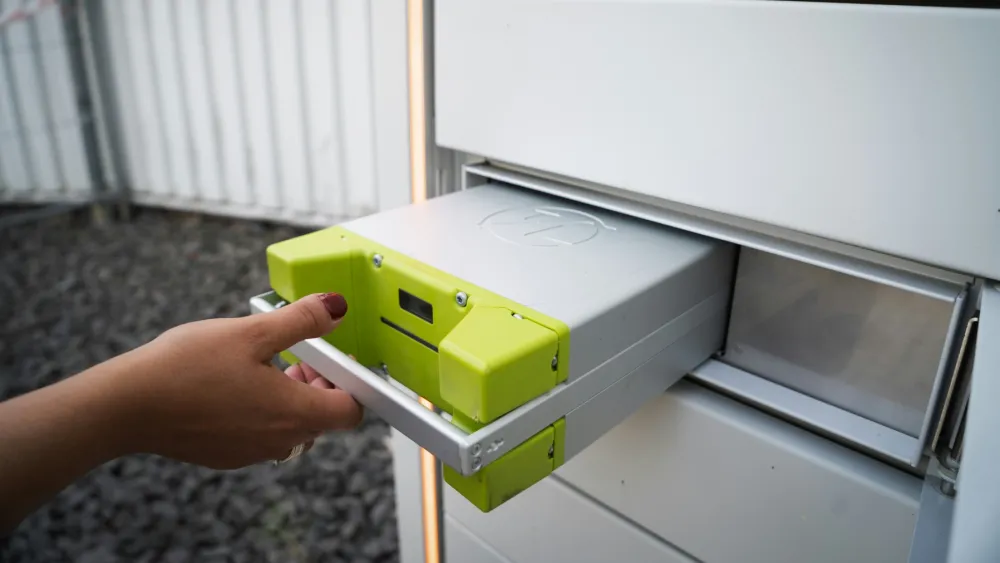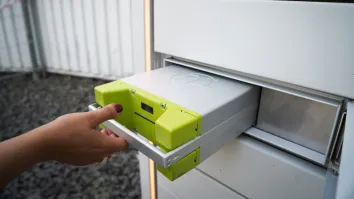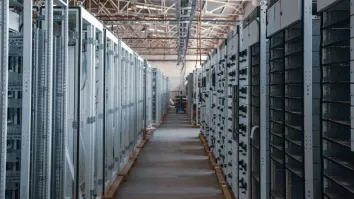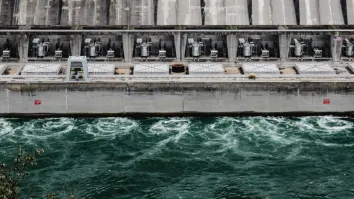
Sustainability of Malaysia’s ENEGEM hinges on renewable energy growth
The pilot will involve the sale of 100 MW of electricity to Singapore through auction.
MALAYSIA’S move to launch a platform that will facilitate an auction for cross-border electricity sales to Singapore may result in competitive power prices, but the sustainability of the Energy Exchange Malaysia (ENEGEM) will rely on Malaysia’s capacity to ramp up its renewable energy generation, according to experts.
Launched in April 2024, Malaysia’s Ministry of Energy Transition and Water Transformation (PETRA) said the ENEGEM will facilitate the auctioning process for cross-border sales of clean energy, with a pilot 100 megawatts (MW) to Singapore through the existing interconnection between Singapore and Peninsular Malaysia.
“PETRA believes that the initiation of auctioning via the ENEGEM Platform will allow Malaysia to further strengthen its cross-border electricity integration framework, whilst paving the way for greater renewable energy development and regional cooperation on cross-border energy trading between ASEAN (Association of Southeast Asian Nations) countries,” the ministry said.
Dinita Setyawati, senior electricity policy analyst for South East Asia at energy think tank Ember, said this move will serve as a case study for other Southeast Asian markets.
“By introducing an auction scheme, the pricing will also be attractive,” Setyawati told Asian Power. “It might be a good reason for Singapore to reduce their dependency on gas if they could secure a lot of renewables from this energy exchange.”
Data from Ember showed that Singapore is heavily reliant on gas for its electricity, accounting for 90% of its energy mix, noting that it has limited renewable energy (RE) due to scarce land availability and high population density.
The platform is aligned with Singapore’s goal of importing up to four gigawatts (GW) of low-carbon electricity by 2035, accounting for 30% of its supply.
Platform process
According to PETRA, the pilot scheme will be open to RE bidders with electricity generation and/or retailer licences for Singapore’s Energy Market Authority (EMA). The platform will be aligned with the Energy Commission’s Guide for Cross-Border Electricity Sales.
Interested bidders need to register with Single Buyer to join the auction. Single Buyer — an entity authorised by the government to handle electricity planning and procurement services for Peninsular Malaysia — oversees the bidding mechanism and transactions.
The winning bidders, meanwhile, have to sign a renewable energy supply agreement with Single Buyer for the procurement of green electricity.
Under the guide, the scheme will allow the export of up to 300 MW of electricity generated from solar and hydropower plants or any other renewable sources as approved by the Commission.
The guide also provided for the sale of electricity to Thailand, subject to availability.
Net proceeds from the scheme will be used to support the fund set up by the Malaysian government for the energy transition of the electricity sector.
Potential challenges
However, Victor Nian, chief executive officer of the Centre for Strategic Energy and Resources, said that the long-term sustainability of the ENEGEM platform “lies with sufficient participants.”
“A market-scale auctioning is only meaningful when there is sufficient competition from both the supply side and the demand side,” Nian said.
“Given the current rate of clean energy expansion in Malaysia, there will be challenges in securing sufficient supply of green electricity,” he added.
Due to this, the price of green electricity may not be acceptable to buyers, even in Singapore.
According to Malaysia’s National Energy Transition Roadmap released in 2023, RE only accounts for 3.9% of its total primary energy supply mix. Natural gas dominated the mix at 42.4%, followed by crude oil and petroleum products at 27.3%, and coal at 26.4%.
Under a responsible transition pathway, the country aims to reduce the reliance on fossil fuel from 96% in 2023 to 77% in 2050, with natural gas serving as the “transitional fuel.” It also aims to raise the share of RE to 23% in 2050 from around 4% in 2023.
As of May 2024, data from Malaysia’s Energy Commission showed that the country has a total renewable energy of 4,018.662 megawatts (MW), dominated by solar power which stands at 3,647.572 MW. This is followed by biogas with a capacity of 155.26 MW, mini-hydropower at 137.45 MW, and biomass and waste-to-energy at 78.38 MW.
“An insufficient and slow ramp-up of clean energy projects in Malaysia and elsewhere could jeopardise the long-term economic sustainability of the Energy Exchange Malaysia platform,” Nian said.
Nian added that to ensure the economic viability of the platform, Malaysia and Singapore should execute long-term trade frameworks, codes and standards, and regulations.
Boosting regional interconnection
The success of the pilot sale to Singapore through the ENEGEM platform will attract more generation companies, retail firms, and renewable energy investors to participate in the auction, Nian said.
On the supply side, the platform could be open to more interested and eligible suppliers and retailers in the two markets.
“There is also a possibility for the platform to be a part of the LTMS (Laos-Thailand-Malaysia-Singapore) operation in the long term when it opens up to more suppliers and retailers in ASEAN,” he added.
According to EMA, the LTMS Power Integration project launched in June 2022, enabling the export of up to 100 MW of hydropower from Singapore through the interconnectors via Thailand and Malaysia.
If interconnection is established, Setyawati also said that this could also encourage other markets to join the platform such as Indonesia and the Philippines, driving more renewable energy generation.
The launch of the platform could provide lessons, and experiences and serve as a reference model in developing regional cross-border power trade, Nian said.
“All relevant stakeholders in the region should be engaged and informed about the development of this platform,” he said.
“If indeed, this is the reference model for the region, it should be replicated and expanded rapidly across the region to form a fair, robust, and efficient regional multilateral electricity trading platform,” Nian added.



















 Advertise
Advertise







